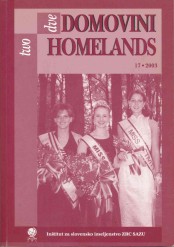True Confessions: The Ojibwa, Bishop Baraga and the Sacrament of Penence
Abstract
In this article I demonstrate that Frederick Baraga, a 19th-century Roman Catholic priest and bishop, had a unique access to the consciousness of individual Ojibwa people and to their culture through the sacrament of penance. Through individual auricular disclosures in Michigan, United States, and in Ontario, Canada, he gained insights both into the idioms of the Ojibwa language and into their spiritual dispositions.
According to Baraga, one of his most important and time-consuming missionary activities was “hearing confessions.” The confessional became a unique source of factual and affective information of the Native world; it was a bridge between the Native oral tradition and the European/North American literal approach. Rigorously true to the demands of the seal of the confessional, Baraga did not share the details or even generalities regarding what transpired in the sacrament of penance. Perhaps because of this confidentiality, Natives trusted and welcomed this forum which was like their spiritual vision/sound quest. In this sacrament, Natives revealed their inner selves and their relatedness to their community, for it was a meeting similar to their experience with elders and healers. In its admission of women and girls, confession was an egalitarian relationship similar to principles directing their own Ojibwa society. This penitential form provided a unique insight into the conscience of the Ojibwa, gave clues to their world, and fashioned an understanding of Ojibwa life which Baraga, the “Snowshoe Priest,” used both in the translation of catechisms and prayer and hymn books, and in the compilation of a grammar text and dictionary. The Ojibwa furnished Baraga with an expanded consciousness, which together with his legal skills, served him as he interceded to implore governments to honor treaty agreements, and to make land purchases on their behalf.
Downloads
Downloads
Published
How to Cite
Issue
Section
License

This work is licensed under a Creative Commons Attribution-NonCommercial-NoDerivatives 4.0 International License.
Authors guarantee that the work is their own original creation and does not infringe any statutory or common-law copyright or any proprietary right of any third party. In case of claims by third parties, authors commit their self to defend the interests of the publisher, and shall cover any potential costs.
More in: Submission chapter





